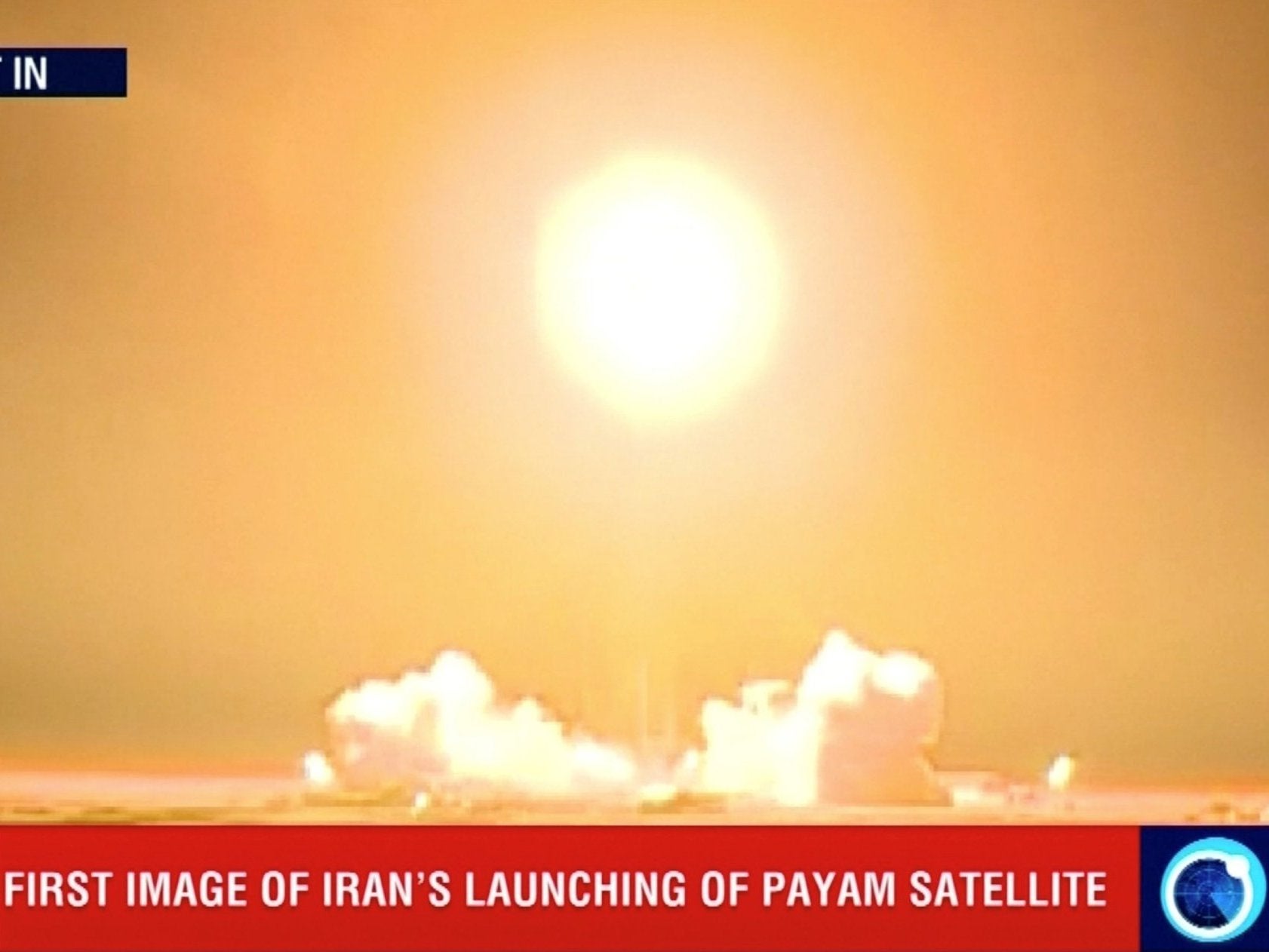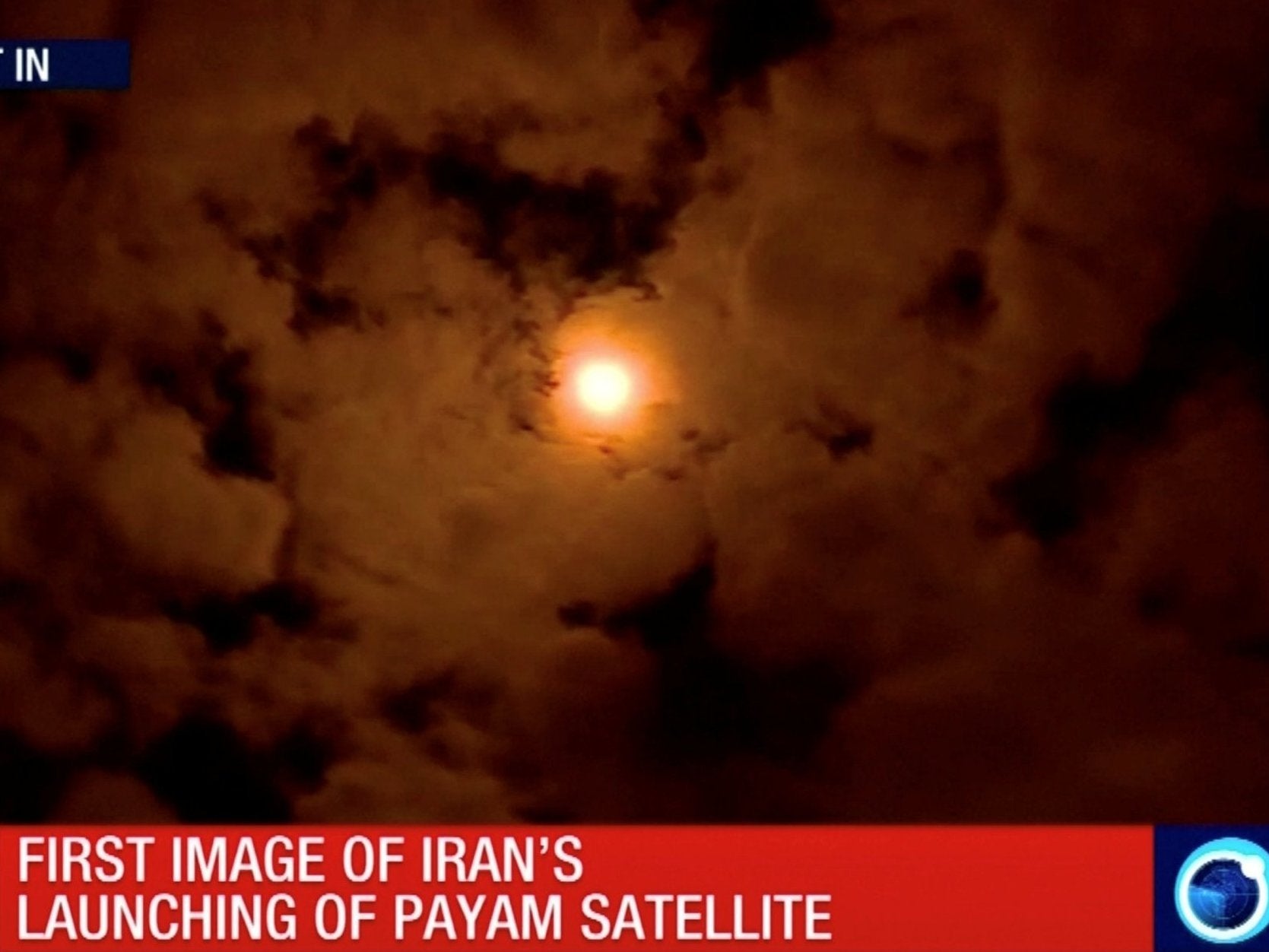Iran fails to launch satellite into orbit after ignoring warnings from US
Washington concerned long-range ballistic technology could also be used to launch nuclear missiles
Your support helps us to tell the story
From reproductive rights to climate change to Big Tech, The Independent is on the ground when the story is developing. Whether it's investigating the financials of Elon Musk's pro-Trump PAC or producing our latest documentary, 'The A Word', which shines a light on the American women fighting for reproductive rights, we know how important it is to parse out the facts from the messaging.
At such a critical moment in US history, we need reporters on the ground. Your donation allows us to keep sending journalists to speak to both sides of the story.
The Independent is trusted by Americans across the entire political spectrum. And unlike many other quality news outlets, we choose not to lock Americans out of our reporting and analysis with paywalls. We believe quality journalism should be available to everyone, paid for by those who can afford it.
Your support makes all the difference.Iran’s attempt to launch a satellite failed to reach orbit, the country’s telecommunications minister has said.
The rocket carrying the Payam satellite failed to reach the “necessary speed” in the third stage of its launch, Mohammad-Javad Azari Jahromi told Iranian state television.
Mr Jahromi said the rocket had successfully passed its first and second stages before developing problems in the third. He did not elaborate on what caused the failure, but promised that Iranian scientists would continue their work.
It came after Iran ignored US warnings to avoid undertaking three planned rocket launches Washington said would violate a UN Security Council resolution because they use ballistic missile technology.
The US is concerned the long-range ballistic technology used to put satellites into orbit can also be used to launch missiles capable of carrying nuclear warheads.

In Israeli prime minister Benjamin Netanyahu promptly condemned the launch, accusing Tehran of lying and alleging that the “innocent satellite” was actually “the first stage of an intercontinental missile” Iran is developing in violation of international agreements.
Iran, which considers its space programme a matter of national pride, has said the launches and missile tests were not violations and would continue.
Payam was intended to be used for imaging and communications purposes and was mounted with four cameras, according to a report on the telecommunications ministry’s website.
It was intended to stay at an altitude of 500km for approximately three years.

It is one of two satellites Iran plans to send into orbit, the other named Doosti. Payam means “message” in Farsi, while Doosti means “friendship”.
Over the past decade, Iran has sent several short-lived satellites into orbit and in 2013 launched a monkey into space.
Iran usually displays space achievements in February during the anniversary of its 1979 Islamic Revolution. This year marks the Middle East nation’s 40th anniversary of the revolution amid increasing pressure from the US under Donald Trump’s administration.
Additional reporting by agencies

Join our commenting forum
Join thought-provoking conversations, follow other Independent readers and see their replies
Comments